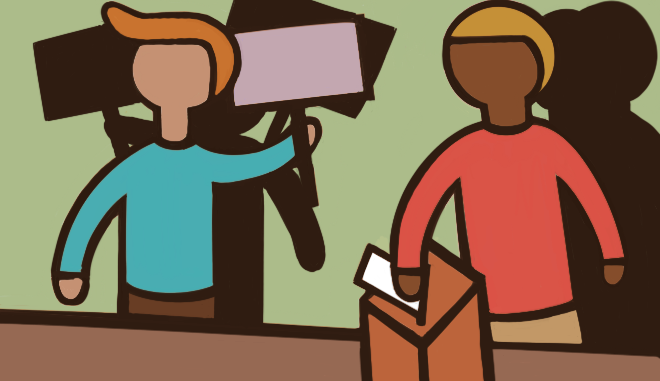

My time working at Pennsylvania state Sen. Katie Muth’s office was life-changing.
I always saw government as this huge, intangible institution that never really had a direct effect on me. But here was a group of hardworking people helping the senator represent the 44th district of Pennsylvania, or Allegheny County, and create real change.
In my time at the office, I watched Muth’s team interact with residents, get out to local marches and rallies for equal rights and write up or cosign legislation that would directly affect the lives of the members of our district. It included abolishing the statute of limitations for sexual assault victims, ensuring paid sick leave for employees and setting health and safety standards for a pipeline being built through the district.
This experience introduced me to the world of local government and how it operates. It opened my eyes to the reality about how change is made, and the majority of the time it is not at the federal level.
That’s why not only voting in local elections is important, but why it is critical to keep up with local government after Election Day.
Local governments play a more direct role in our everyday lives, determining local laws, budgets and citywide policies.
“Even if you’re not from Philadelphia, you’re living here for four years, and what’s going on in the city has a direct impact on your quality of life for those four years,” said Barbara Ferman, a political science professor with expertise in urban policy, social justice activism and youth leadership development. “It has more of a direct impact on our everyday lives.”
For students, this is especially important, with local officials determining everything from student debt policies to funding for community colleges, according to the Campus Vote Project, an organization working to promote college student voter participation.
“When the government shutdown happened, I kept asking my students to tell me how it affected them, and the reality is, and it’s hard for people to wrap their heads around it, but most Americans have very little interaction with the federal government,” said Robin Kolodny, chair of Temple University’s political science department.
The Constitution was designed to allow state and local governments to decide on matters affecting citizens’ everyday lives, rather than the federal government, which is why it is so critical to engage with local government officials and politics.
“Know who your representatives are and look them up,” Ferman added. “Look up what issues they’ve voted on and how they voted. That’ll tell you more information than talking to them.”
One simple way to get involved is to show up for town halls and city council meetings, where decisions affecting our daily lives are decided. These town hall meetings are the primary way that constituents can communicate with their representatives. This gives us an opportunity to voice our opinions on local issues that affect us, like rent policy and off-campus housing conditions.
“There’s a lot of slimy landlords around Temple, around [the University of Pennsylvania] and around all universities, and so city government is really important in whether they’re regulating landlords or not,” Ferman added.
It is important to get in touch with the people who represent you if you have any opinions on how the district could be improved.
“Whether a student is planning to relocate to Philadelphia or is just choosing to stay here while he or she is studying, it definitely helps to have a positive presence in terms of interacting with their local government,” said Andrea Swan, director of community and neighborhood affairs at Temple’s Office of Community Relations.
As a student, I understand how hard it might seem to get involved in politics and government with busy schedules, classes and work. But by voting and getting involved in local politics throughout the year, we can improve our community and advocate for the causes most important to us.
Complaints without action are just complaints, but if you are being an active member of the community and reaching out to local representatives, your voice can facilitate real change.


Be the first to comment